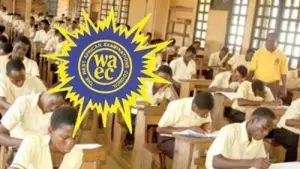The Head of the West African Examinations Council (WAEC) Nigeria, Amos Dangut, has admitted that examinations conducted late at night in some parts of the country were "substandard" and failed to meet the council's established criteria.
Dangut made this admission on Monday when he appeared before the House of Representatives Committee on Basic Education and Examination Bodies to address the controversial conduct of the 2025 Senior School Certificate Examination (SSCE).
Last Wednesday, numerous examination centers across Nigeria experienced significant delays in administering the English Language paper, which was originally scheduled to begin at 9 am. At some centers, students reportedly had to use mobile phone flashlights and torches to read and answer questions as the examinations extended into nighttime hours.
During the committee hearing, Dangut explained that the disruptions resulted from logistical challenges after the original examination questions were leaked, necessitating the printing of new exam papers.
When questioned by committee member Billy Osawaru about the credibility of the examinations, Dangut initially defended the process, stating, "It was a credible exam."
However, after further questioning about whether exams conducted using phone flashlights could be considered credible, the WAEC boss eventually conceded that the examinations were "substandard."
"Can the exams conducted using phone flashlights as the only light source be truly considered credible? Can you show me, from your regulations, that exams written under those conditions are credible," Osawaru had pressed.
The Chairman of the Committee, Oboku Oforji, concluded the session by requesting WAEC to provide its examination guidelines and a comprehensive report on the conduct of the 2025 SSCE in the affected areas.
The incident has sparked widespread criticism from parents, students, and education stakeholders across the country. Reports indicate that WAEC is now facing a N100 billion lawsuit related to the midnight examination controversy.
The examination body had previously issued a statement explaining that the delays were caused by logistical challenges, but the admission that the exams fell below standards marks a significant development in the ongoing controversy.













